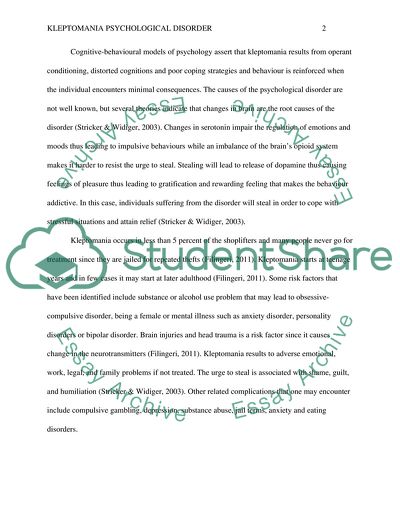Cite this document
(“Kleptomania Psychological Disorder Essay Example | Topics and Well Written Essays - 1000 words”, n.d.)
Kleptomania Psychological Disorder Essay Example | Topics and Well Written Essays - 1000 words. Retrieved from https://studentshare.org/psychology/1673083-the-psychological-disorder-kleptomania-from-a-psychological-perspective
Kleptomania Psychological Disorder Essay Example | Topics and Well Written Essays - 1000 words. Retrieved from https://studentshare.org/psychology/1673083-the-psychological-disorder-kleptomania-from-a-psychological-perspective
(Kleptomania Psychological Disorder Essay Example | Topics and Well Written Essays - 1000 Words)
Kleptomania Psychological Disorder Essay Example | Topics and Well Written Essays - 1000 Words. https://studentshare.org/psychology/1673083-the-psychological-disorder-kleptomania-from-a-psychological-perspective.
Kleptomania Psychological Disorder Essay Example | Topics and Well Written Essays - 1000 Words. https://studentshare.org/psychology/1673083-the-psychological-disorder-kleptomania-from-a-psychological-perspective.
“Kleptomania Psychological Disorder Essay Example | Topics and Well Written Essays - 1000 Words”, n.d. https://studentshare.org/psychology/1673083-the-psychological-disorder-kleptomania-from-a-psychological-perspective.


